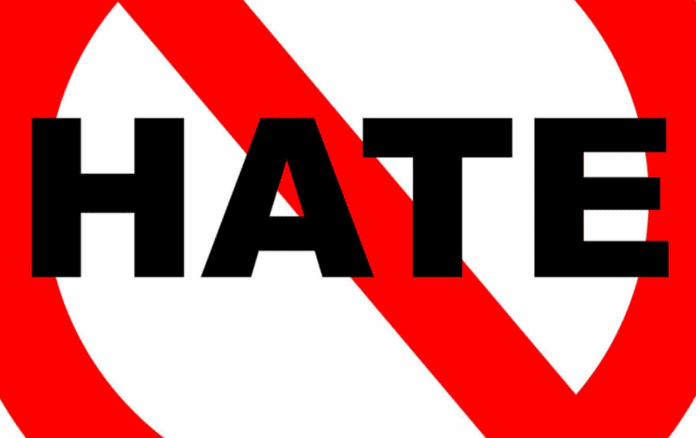In recent years, the political landscape has seen an unsettling rise in the harassment of female politicians with vulgar voicemails seemingly becoming an acceptable way for one to express themselves.
Consider the recent case of W.Va. Sen. Laura Wakim Chapman, who, for no apparent reason, five months after the Legislature adjourned sine die, received a terribly vulgar message on a non-Capitol device, her work telephone voicemail. This particular message, filled with disgusting language and misogynistic slurs, was not just a personal attack but rather an attempted assault on her dignity as a woman and a public servant.
Across the globe, women in politics are being targeted with a level of vitriol that is both alarming and unacceptable. Such behavior raises a critical question, how can we claim to support gender equality when our society allows this type of treatment to persist? No female politician, or any politician for that matter, should be subjected to vulgar and demeaning harassment. It’s a practice that undermines the foundations of our democracy and deters capable women from pursuing political office.
Gender-based harassment in politics is not a new phenomenon, but its forms and intensity have evolved with time, particularly in the age of social media. Historically, women in leadership roles have faced opposition not just for their policies, but for their gender. They have been scrutinized for their appearance, tone, and even their personal lives in ways that their male counterparts rarely experience. However, the introduction of social media and easily accessible communication channels has given rise to a new wave of harassment where individuals can spew their venom anonymously.
This harassment is not just about words. It has a profound psychological impact, causing stress, anxiety, and in some cases, fear for personal safety. For many women, the barrage of vulgarity is a reminder that they are viewed not as leaders, but as objects to be degraded.
This emotional toll is compounded by that fear.
The implications of this harassment extend far beyond the personal suffering of individual politicians. It affects the very fabric of our democratic society. When female politicians are subjected to vulgar voicemails and other forms of harassment, it creates a hostile environment that discourages other women from stepping into public life and seeking public office. Aspiring female leaders may think twice before running for office, knowing their gender makes them a target for abuse.
This deterrence has serious consequences for representation. Women make up over half of the population, yet their voices are underrepresented in government. When harassment forces women out of politics, or prevents them from entering in the first place, it deprives the electorate of diverse perspectives that are crucial for a healthy democracy. It also perpetuates a cycle where the political arena remains dominated by men, reinforcing existing power structures.
Moreover, the prevalence of such harassment erodes the values of respect and civility that should underpin our political discourse. Democracy thrives on debate and the exchange of ideas, but when that discourse is tainted by vulgarity and personal attacks, it becomes difficult to engage in meaningful dialogue. The normalization of such behavior sets a dangerous precedent, where the line between political disagreement and personal attack becomes increasingly blurred.
Female politicians often face a double standard, where their male counterparts are judged on their policies, while they are judged on their gender. This disparity not only undermines the principles of fairness and equality but also perpetuates a culture of misogyny that has no place in modern society.
Addressing this issue requires a multi-faceted approach, beginning with strong legal protections. Laws against harassment need to be robust and enforceable, ensuring that those who engage in such behavior are held accountable. This includes updating existing laws to fully cover online harassment, which is a growing concern as more and more people have these devices.
Legal action, however, is only one part of the solution.
A broader cultural shift is essential. As a society, we must move away from the normalization of misogyny and vulgarity in public discourse. This means challenging the attitudes and behaviors that allow such harassment to thrive. Educational initiatives, media campaigns, and public awareness efforts can all play a role in changing the narrative and promoting a culture of respect and equality.
Male politicians and public figures also have a crucial role to play as allies of their female colleagues. Their voices can help to amplify the message that harassment of any kind is unacceptable. By standing with their female contemporaries and condemning such behavior, they can help shift the cultural norms perpetuating this issue. It is only through collective action that we can create a political landscape where all leaders, regardless of gender, can serve without fear of harassment.
The harassment of female politicians through vulgar voicemails and other means is more than just a personal attack. It is an assault on the principles of democracy, equality, and respect. No one, regardless of their gender or political stance, should have to endure such treatment. The responsibility to change this reality falls on all of us. We must demand better.
We must do better.
By speaking out against harassment and supporting initiatives promoting respect and equality, we can create a political environment where everyone can participate without fear. The dignity of our public officeholders reflects the dignity of our society as a whole. In defending the former, we defend the latter, ensuring our democracy remains strong, inclusive, and objective.
It is time to take a stand and say unequivocally: No more. No more vulgar voicemails. No more harassment. No more tolerance for hate.


